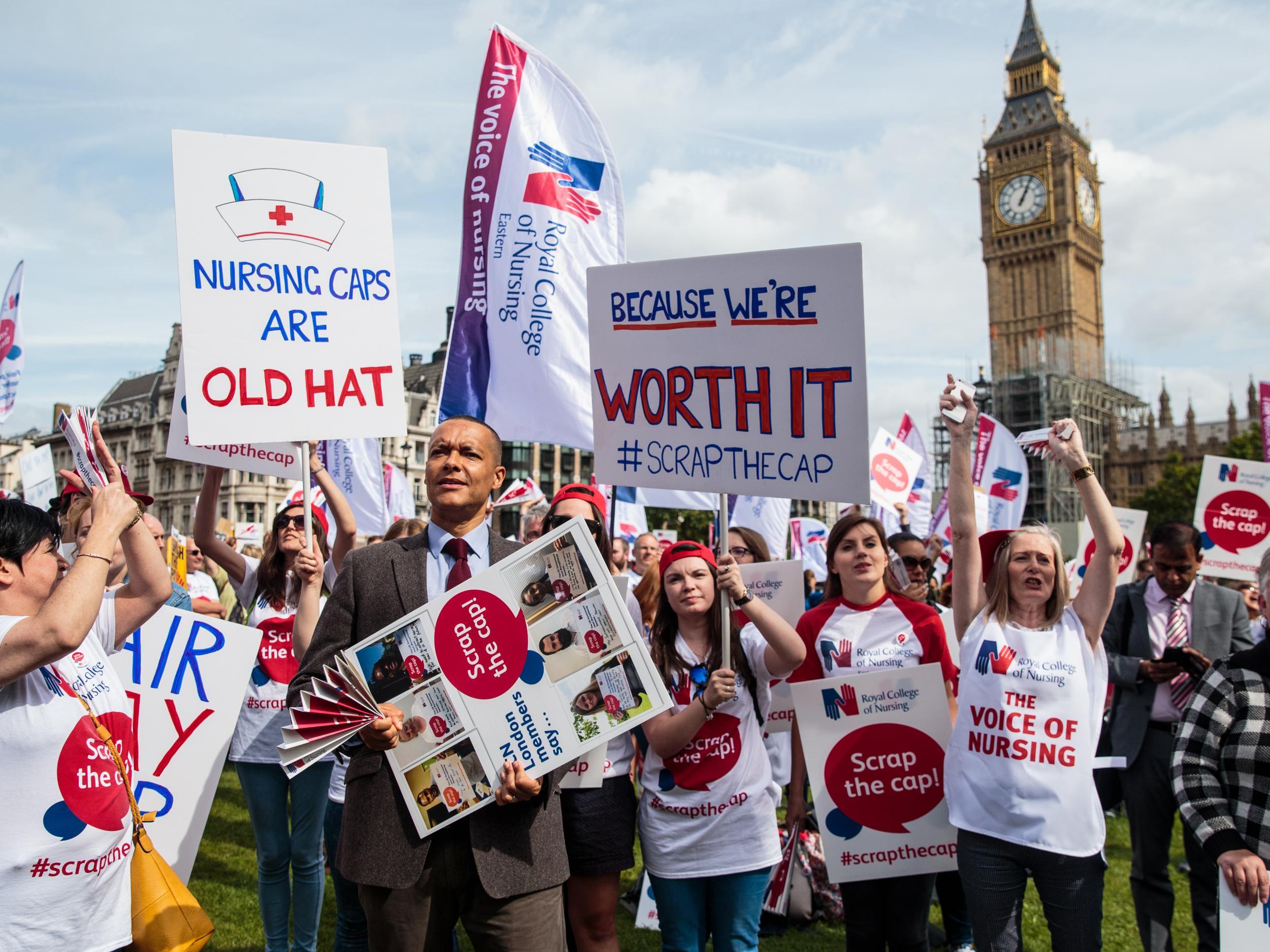Government departments cannot afford Theresa May's pledge to scrap public sector pay cap, new analysis warns
‘The Conservatives are attempting to hoodwink the public into believing that the public sector pay cap is over while knowing full-well that it isn’t’

Cash-starved government departments are unable to fund Theresa May’s pledge to scrap the public sector pay cap, a new analysis warns today.
They would require budget increases of up to 18.5 per cent simply to deliver a 1 per cent pay rise – the existing cap – without further service or staffing cuts, according to the study.
The Department for Work and Pensions (DWP), Revenue and Customs (HMRC), the Ministry of Justice (MoJ) and the Department for Transport (DfT) all face huge shortfalls, it said.
Faiza Shaheen, the head of the think tank, which carried out the analysis for the PCS union, accused the Government of “attempting to hoodwink the public”, ahead of the new pay year.
She urged the Chancellor, Philip Hammond, to use his spring statement, later this month, to think again to stop more public sector workers “being pushed into poverty and using food banks”.
Last September, under fierce pressure, the Prime Minister said the cap was over when she promised “flexibility” for all public sector workers from this year.
But Ms Shaheen, director of the Centre for Labour and Social Studies (Class), said: “The Conservatives are attempting to hoodwink the public into believing that the public sector pay cap is over while knowing full-well that it isn’t.
“Our analysis shows what Philip Hammond knows – lifting the public sector pay cap either means further job losses or cutting public services, an impossible and unfair choice.”
Mark Serwotka, the PCS general secretary, added: “The time for prevarication is over. Our members – and all public service workers – deserve a pay rise.”
The analysis calculated the increases in resource departmental expenditure limits (RDELs) – departments’ budgets for current spending – required for a 1 per cent pay rise in 2018 and in 2019.
It found that many departments will still be wrestling with real term cuts to their budgets through to the end of the decade.
That left the DWP needing a 4 per cent increase just to fund a 1 per cent rise next month, with a 7 per cent rise needed at both HMRC and the MoJ, Class found.
But those shortfalls were set to mushroom by April 2019, at the DWP (15.9 per cent), HMRC (14 per cent), MoJ (11 per cent) and DfT (18.5 per cent).
Only the Home Office and Ministry of Defence would be able to fund a 1 per cent rise – itself still well below the expected rate of inflation next year, the think tank said.
Data for the Department of Health and the Department for Education was not available for the study, Class said.
In response, a Treasury spokesman did not address the detail of the analysis, but insisted it was “ensuring that public sector workers are fairly paid for the vitally important work that they do”.
“That is why we ended the across-the-board 1 per cent pay award policy for public sector workforces in September 2017,” he said.
“The independent pay bodies have been examining each workforces’ needs and circumstances since the autumn and we will carefully consider their recommendations.”
In his autumn Budget, the Chancellor failed to provide any new money to fund higher pay for 2018/19 – instead suggesting productivity improvements must come first.
Join our commenting forum
Join thought-provoking conversations, follow other Independent readers and see their replies
Comments
Bookmark popover
Removed from bookmarks